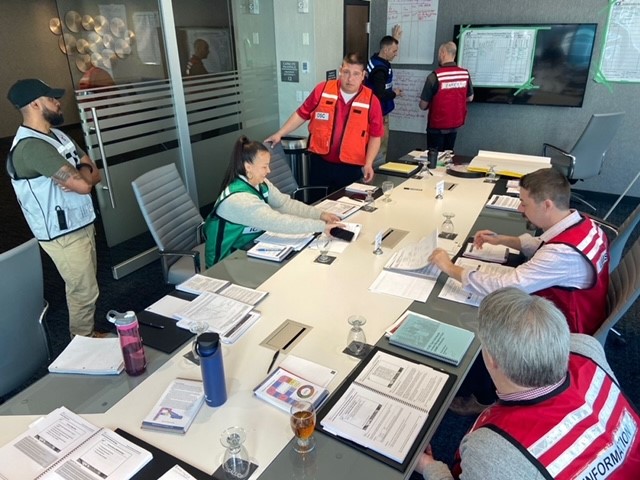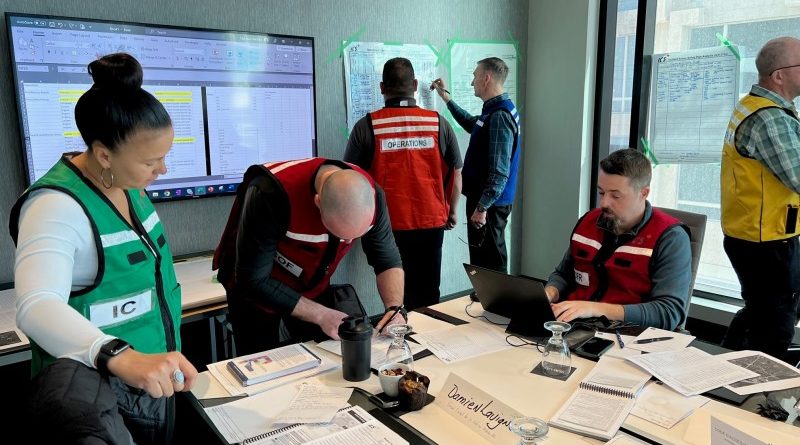From Dice Rolls to Disaster Response: The Unexpected Connection Between D&D and Emergency Management
As I sat in the theatre watching the new Dungeons & Dragons: Honor Among Thieves movie with my son, I couldn’t help but reflect on my recent completion of the ICS O-305 course for emergency management. It struck me just how much my current skill set can be traced back to playing role-playing games in my youth. The similarities between these games and emergency management are striking, and I realized that the lessons I learned playing these dice-based games have carried over into my professional life. Here’s what I learned from playing Dungeons and Dragons and how it made me a better emergency manager.
Firstly, both role-playing games and emergency management require careful risk assessment and planning. In the game, you need to assess the risks associated with each encounter and plan your strategy accordingly. Similarly, in emergency management, you need to identify potential risks and hazards and develop a plan to mitigate them. Playing these games taught me to think critically and strategically about potential risks and to always have a plan in place.

One crucial skill I gained is adapting to changing circumstances and working efficiently with whoever is present. In both the game and emergency management, you never know who will show up to help you achieve your goals. It could be a new player joining the campaign or an unexpected ally appearing in the middle of a battle. In emergency management, it could be a volunteer who shows up to assist or a neighbouring jurisdiction sending aid. Regardless of who is available, you need to be able to build trust quickly, communicate effectively, and be flexible in your problem-solving approach. These skills have been invaluable to me as while responding to communities in crises, where I often need to work with people I’ve never met before and have little opportunity to get to know them beforehand.
You can not underestimate the importance of communication and coordination during a D&D campaign and while managing a disaster response team. Effective communication with your team members is essential to coordinate your efforts and achieve your goals. Through many long days and nights where games lasted for days or the whole long weekend, I learned how to collaborate with others, communicate effectively, and build a strong team in stressful sleep-lacking environments. All while being an active listener to my team members. This has helped me in emergency management situations where time is of the essence, and effective communication can be the difference between success and failure.
Both role-playing games and emergency management require adaptability, improvisation, and the ability to think creatively under pressure. In the game, players must be able to adapt to unexpected situations and improvise solutions on the fly, just as emergency managers must be able to respond to changing circumstances and make quick decisions in high-pressure situations. Playing these games taught me invaluable skills that have made me a more effective emergency manager, including risk assessment, team building, communication, and improvisation. Dungeons and Dragons, a game I enjoyed as a kid, has proven to be an unexpected source of learning and growth for me, demonstrating that essential lessons can be found in unexpected places. Overall, I have come to appreciate the overlap between Dungeons and Dragons and emergency management and the value of developing a diverse skill set that draws on various experiences and influences.
